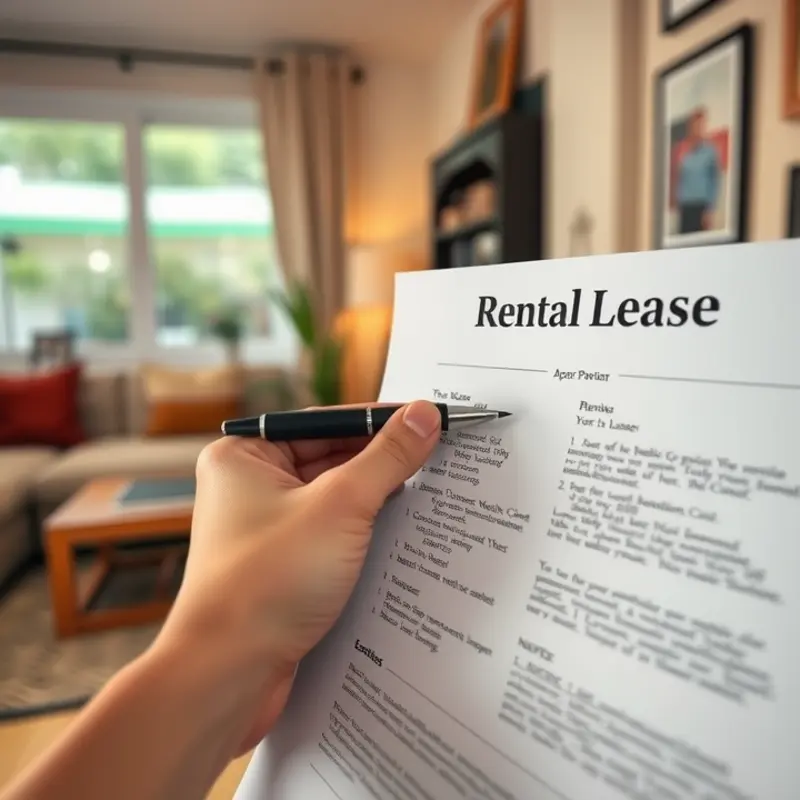Renting a home for the first time can be exciting yet overwhelming, especially when navigating the intricacies of tenant rights in California. Whether you are a young professional, a student, a couple starting your journey together, or a family seeking financial clarity, understanding your rights as a tenant is crucial. California boasts some of the nation’s strongest tenant protections, empowering renters and ensuring fair treatment in the rental market. This guide aims to shed light on your rights, responsibilities, and key lease terms that you should be aware of, so you can make informed decisions and feel confident in your renting experience. From understanding security deposits to knowing your rights when facing eviction, this article covers essential aspects of tenant rights in California, helping you secure your dream rental home while protecting your interests.
Essential Rights Every Tenant Should Know

Renting your first apartment in California can be both exciting and daunting. Understanding your rights is crucial to ensuring a positive rental experience. Let’s delve into some of the most critical tenant rights every renter should know.
First, tenants have the right to habitable living conditions. This means your landlord must maintain the property so that it is safe and suitable to live in. Essential services such as heating, plumbing, and electricity must be functional and comply with building and health codes. If your landlord fails to make necessary repairs after notice, you may have the option to withhold rent or make repairs yourself and deduct the cost from your rent.
Another fundamental right is protection against discrimination. Under California law, it is illegal for landlords to discriminate against prospective or current tenants based on characteristics such as race, gender, sexual orientation, or familial status. If you believe you have faced discrimination, you can file a complaint with the Department of Fair Employment and Housing (DFEH).
Your right to privacy is also protected as a tenant. Landlords must provide reasonable notice—typically 24 hours—before entering your rental unit, except in emergencies. This notice should state the reason for entry, whether for repairs, inspections, or showing the unit to potential tenants.
When it comes to handling disputes, understanding your rights is the first step in resolving issues effectively. Begin by communicating with your landlord in writing, clearly stating the problem and what you expect to be done. If this doesn’t lead to a resolution, you might consider mediation or legal action as a last resort. Knowing when a landlord can or cannot evict you is also essential. For detailed information on legal reasons for eviction, consider visiting this resource.
Safeguarding your rights requires proactive and informed actions. Keeping a record of all communications, including emails and written notices, is vital. In challenging situations, seek advice from a tenant’s rights organization or a legal professional. By knowing your rights and the appropriate steps to take, you can ensure a fair and respectful rental experience.
Understanding Lease Agreements

Signing a lease is a critical step in securing your new living space. Before committing, it’s essential to understand the components of the lease agreement. Let’s delve into the key terms you should scrutinize.
Rent: This is the most apparent element, but understanding the specifics can save trouble later. Ensure you know the exact amount due, including any associated fees such as utilities or parking. Check the due date and acceptable payment methods.
Security Deposits: In California, landlords usually require a security deposit. By law, this cannot exceed two months’ rent for unfurnished apartments or three months’ rent for furnished ones. Understand the conditions under which it may be withheld, such as damage or unpaid rent, and how you can ensure its return.
Duration and Renewal Clauses: Determine the lease’s term. Is it fixed-term or month-to-month? Pay attention to renewal options. If there’s an automatic renewal clause, note the notice period required to terminate.
When it comes to documentation, a thorough move-in inspection is crucial. Document the property’s condition with photos or videos. This record can prevent disputes over damages when your lease ends. Share this documentation with your landlord as a reference, ensuring both parties’ expectations are clear.
Maintenance Requests: Tenants have a right to a habitable living environment. In California, landlords must address significant repairs, like plumbing issues or heating defects, within a reasonable time. Always submit maintenance requests in writing and keep a copy for your records.
Understanding these aspects will set a strong foundation as you move through your rental journey. For more on ensuring smooth rent negotiations, see our tips here.
Final words
Understanding tenant rights in California simplifies the renting experience, equipping you with the knowledge required to navigate the rental market confidently. Protecting your interests is essential, whether you are dealing with insufficient living conditions or understanding your lease terms fully. By staying informed and proactive, you not only safeguard your peace of mind but also ensure that your rights as a tenant are respected. As you embark on this exciting chapter of renting, remember that your rights provide a sturdy foundation for a positive and harmonious living experience.









